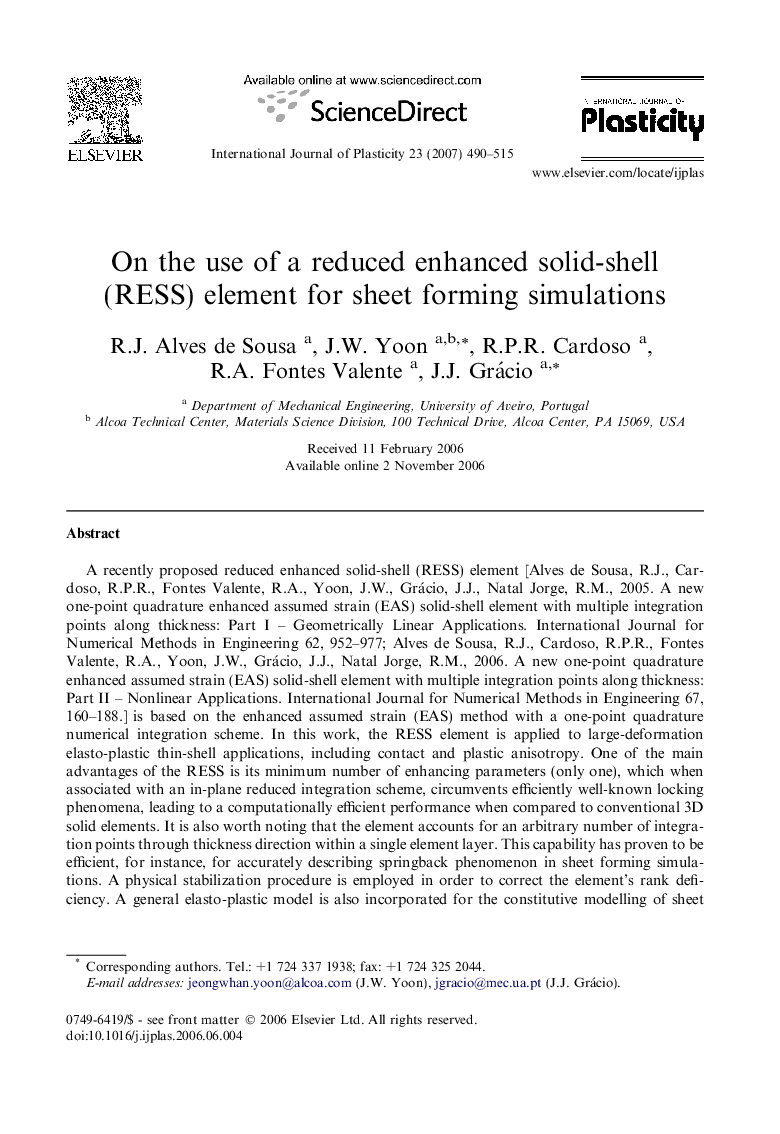| کد مقاله | کد نشریه | سال انتشار | مقاله انگلیسی | نسخه تمام متن |
|---|---|---|---|---|
| 789213 | 1465700 | 2007 | 26 صفحه PDF | دانلود رایگان |

A recently proposed reduced enhanced solid-shell (RESS) element [Alves de Sousa, R.J., Cardoso, R.P.R., Fontes Valente, R.A., Yoon, J.W., Grácio, J.J., Natal Jorge, R.M., 2005. A new one-point quadrature enhanced assumed strain (EAS) solid-shell element with multiple integration points along thickness: Part I – Geometrically Linear Applications. International Journal for Numerical Methods in Engineering 62, 952–977; Alves de Sousa, R.J., Cardoso, R.P.R., Fontes Valente, R.A., Yoon, J.W., Grácio, J.J., Natal Jorge, R.M., 2006. A new one-point quadrature enhanced assumed strain (EAS) solid-shell element with multiple integration points along thickness: Part II – Nonlinear Applications. International Journal for Numerical Methods in Engineering, 67, 160–188.] is based on the enhanced assumed strain (EAS) method with a one-point quadrature numerical integration scheme. In this work, the RESS element is applied to large-deformation elasto-plastic thin-shell applications, including contact and plastic anisotropy. One of the main advantages of the RESS is its minimum number of enhancing parameters (only one), which when associated with an in-plane reduced integration scheme, circumvents efficiently well-known locking phenomena, leading to a computationally efficient performance when compared to conventional 3D solid elements. It is also worth noting that the element accounts for an arbitrary number of integration points through thickness direction within a single element layer. This capability has proven to be efficient, for instance, for accurately describing springback phenomenon in sheet forming simulations. A physical stabilization procedure is employed in order to correct the element’s rank deficiency. A general elasto-plastic model is also incorporated for the constitutive modelling of sheet forming operations with plastic anisotropy. Several examples including contact, anisotropic plasticity and springback effects are carried out and the results are compared with experimental data.
Journal: International Journal of Plasticity - Volume 23, Issue 3, March 2007, Pages 490–515